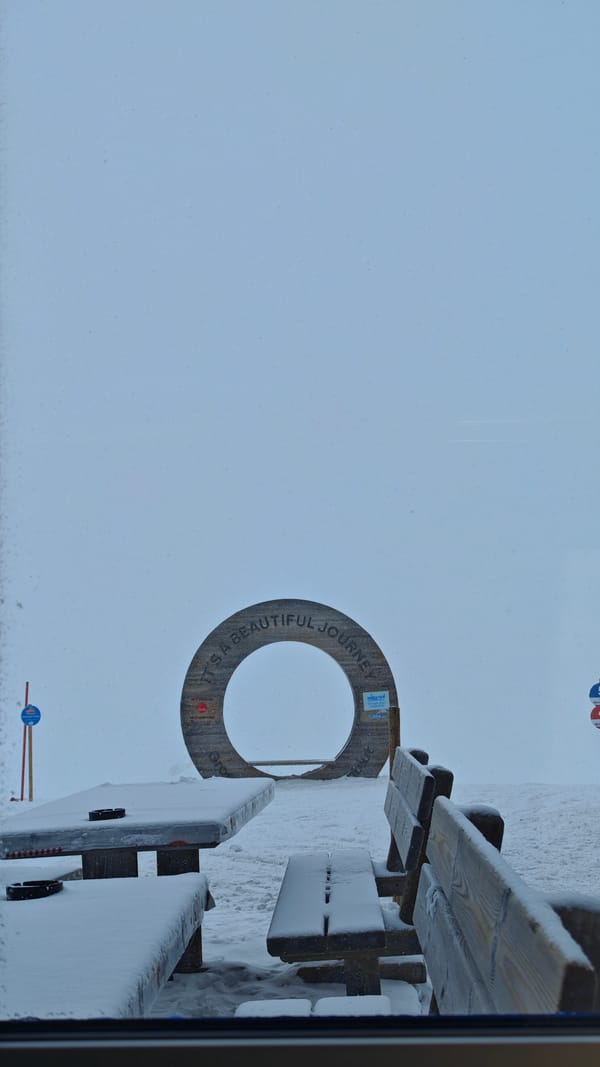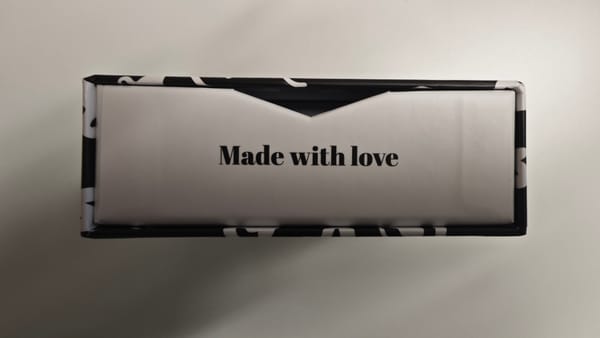Week 47/2024
I haven't found a good reason

Bluesky during an autumn walk (no filter).
NSFW
This week’s song comes from Michelle Gurevich.
YouTube:
I like, in particular, the energetic bassline, but also her voice is just great, in many songs, not just this one. May I recommend that you listen to a playlist like this one:
Retrospect
Interdisciplinarity
The conference in Graz on interdisciplinary and transdisciplinary work, organised by the Smart regulation network there was very interesting.
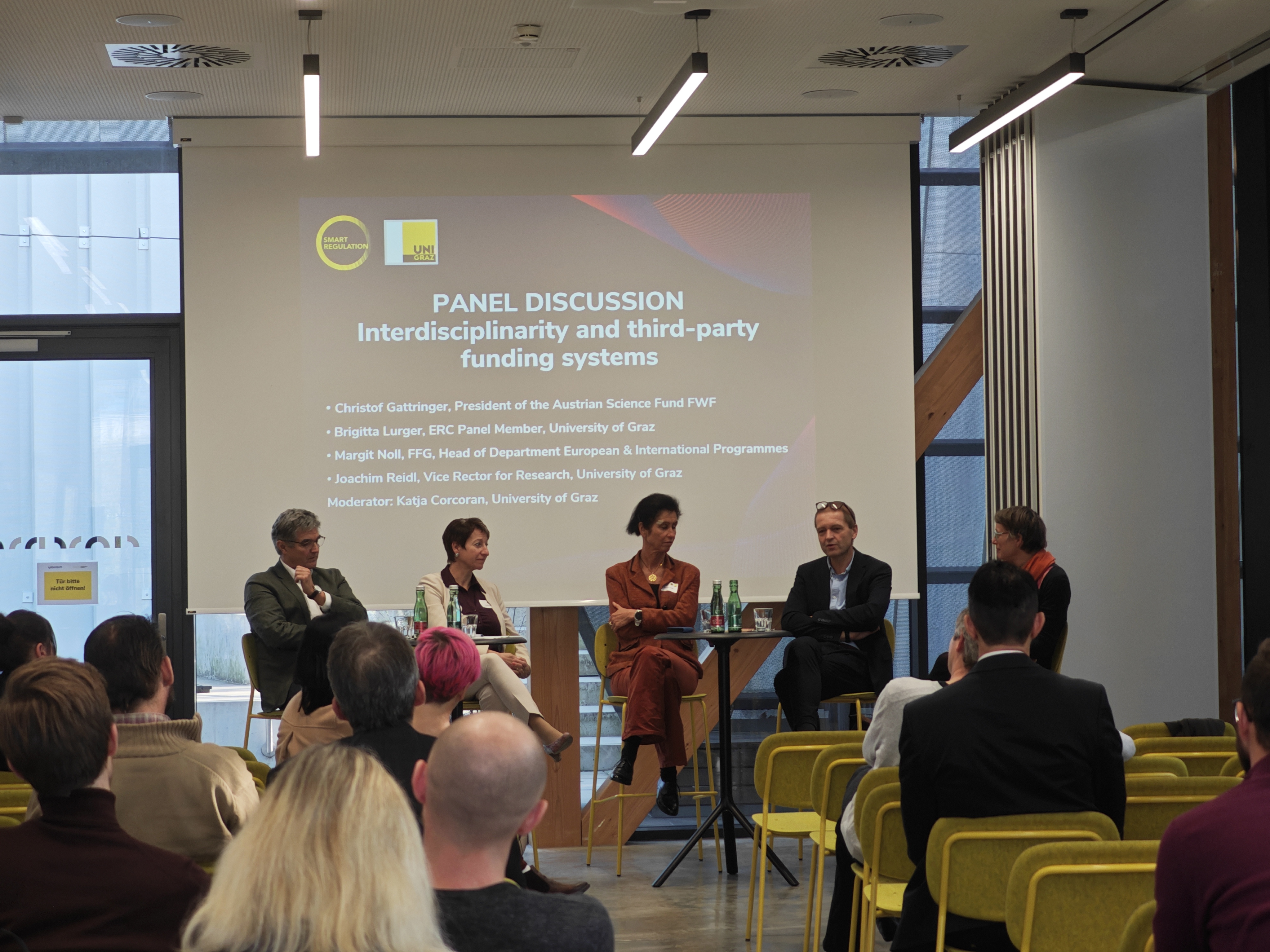
I appreciated, in particular, to meet Prof. Dr. Jana Lasser who gave a fascinating overview of different counterspeech strategies directed against hatespeech on Twitter/X. It’s a just brilliant example of cooperation among researchers from social sciences/humanities and computer science with very high relevance for law.
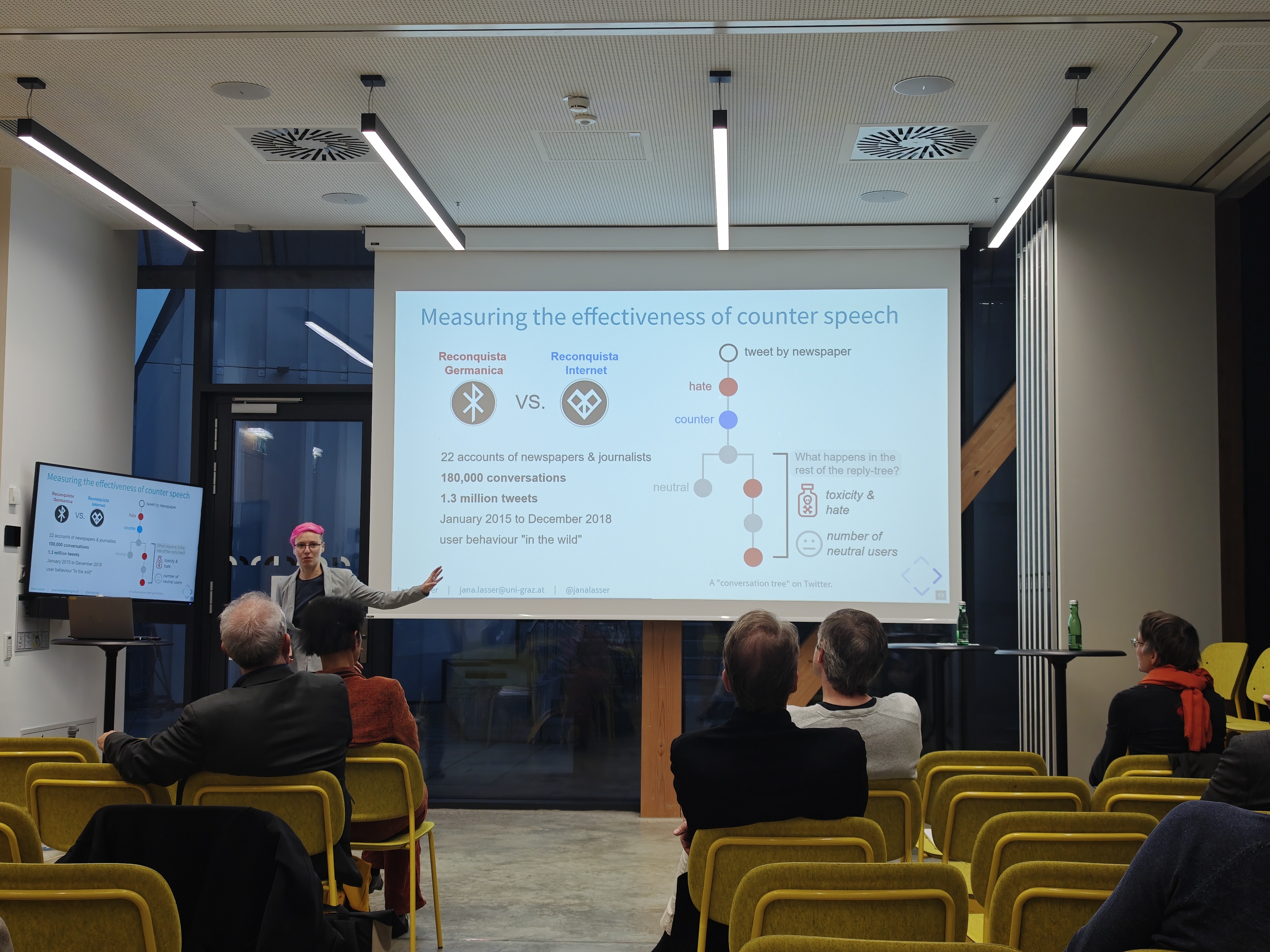
Her slides are online. I learned that she’s also very active on matters of power abuse in academia.
This was the rare case where meeting one single person was already worth the whole trip. Jana kindly agreed that she would give a modified and extended version of her talk once again in #arsboni in January and I am already very much looking forward to this.
Concordia
The - very nice - Concordia-event on “What is Journalism” (and my small contribution to it) triggered some interesting reactions such as:

The video with presentations and debate is still online, Wolf’s intervention is here:
Geek Stuff
I -finally - bought a condenser microphone for my laundry. It’s a Neumann TLM 103 (absurdly expensive) and it took me, probably, hundreds of hours watching YouTube microphone reviews such as Podcastage, Booth Junkie or Curtis Judd to finally make this choice. TLM stands for transformator less microphone
Despite of all the input, the final decision was mainly based on the fact that Neumann was able and willing to respond to my (stupid) questions prior to the purchase - different from Lewitt and Austrian Audio that ignored me.
I was also, again, very happy with Thomann who helped me quickly in navigating through 1/4, 3/8 and 5/8 inch screws and threads (USB-C is a joke, in comparison). I don’t know whether I am representative here, but I ended up in buying a product twice as expensive as its competitors from a vendor that was clearly not the cheapest simply due to their (online) service. Thomann and Neumann are both, in my view, very good examples of how a (German) SME can outperform Amazon or Chinese manufactureres.
Here is how the mic sounds (and looks).
It’s not a U87 (which would be even more out of my budget) and I am not John Lennon or Jeff Buckley singing into this,
- the sigh one can hear so clearly in this Spotify version at the beginning is perhaps the best part of the whole song - :
sure, but at least I can claim now that I am using the same microphone like Billie Eilish.
Of course, this story never ends. Next thing to consider is whether I really need a second camera - and if so, which one :-). And, by the way, Eilish uses a Telefunken 251 nowadays (worth 14.000 €).
COMMUTE
Commute is one of the research projects I am in particular invested into. The project aims to understand what happens after COVID-19 infection and its consequences on neurodegenerative diseases like Parkinson or Altzheimer. It unites experts from AI & data science as well as cellular assay and epidemiology mining specialists, clinical researchers, and ethical & legal experts (which is us).
It was a big honour to welcome everyone in Vienna for a consortium meeting.
Rodessa, Olga and Alexandra Maria from the Department did an excellent job in organising this. Martin Hofmann-Apitius, whom I have the privilege to collaborate with for more than 10 years, is the project’s PI. This is him opening the meeting.
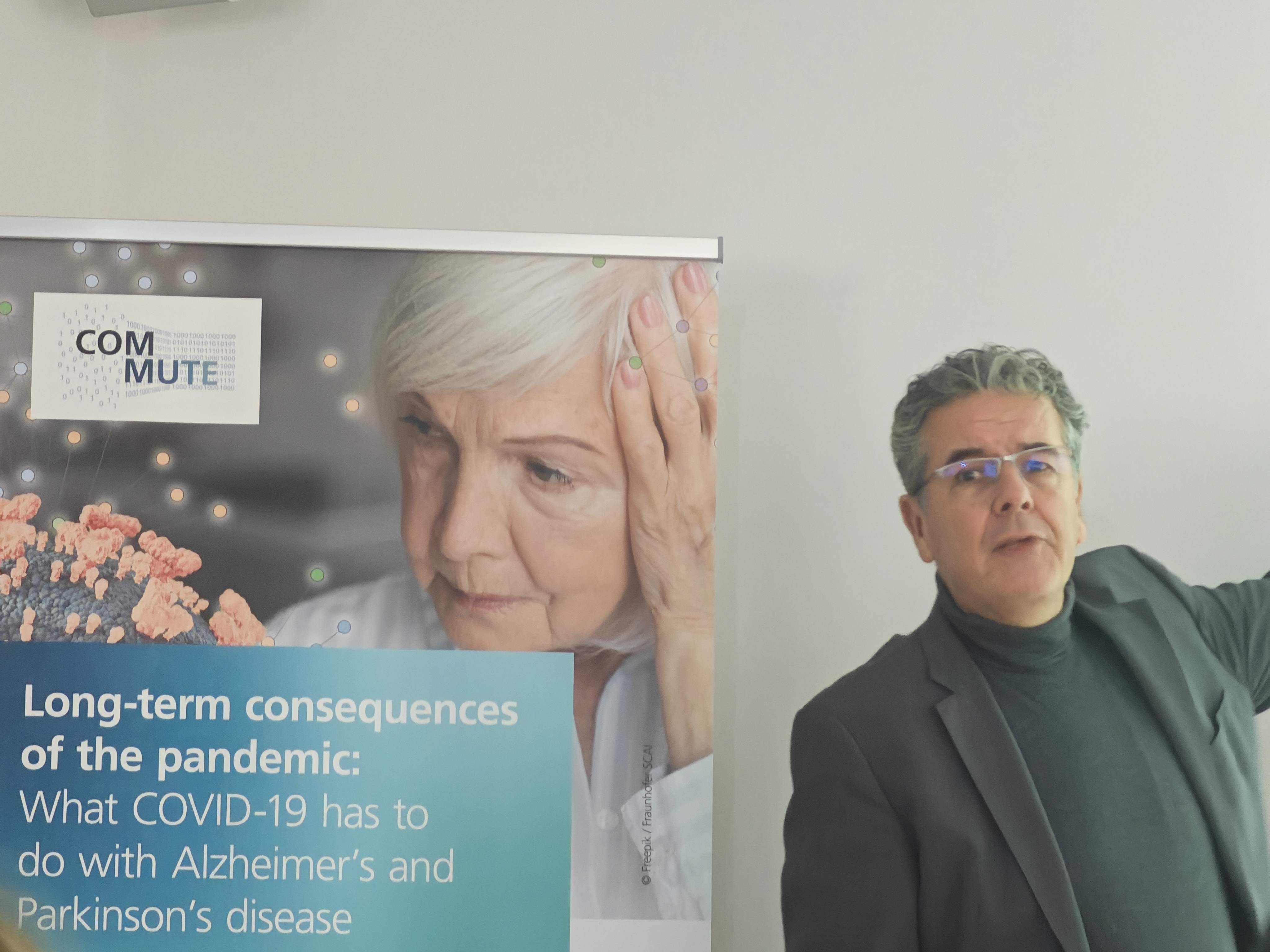
We tried to stream and record the session, but despite seven men (again, only men, me being one of them and, of course, responsible for the disaster) trying to collaboratively fix the issue, we didn’t manage to get OBS to stream sound. We needed to go back to our fallback scenario which was a local recording. So, this is, what we have - with 3 minutes missing video, unfortunately due to the technical catastrophies.
It’s frustrating how difficult these things still are. I constantly talk about Artificial General Intelligence and so forth and every single week I see people not getting their presentation working or the sound on, or the video running and so on.
However, the debate, despite the technical glitches (that put me really under stress, I don’t know whether one can see this), is, in my view very much worth to listen to. Its mainly about AI and data protection regulation in medical research and about possible best practices in Europe. I appreciated that the audience participated very actively. In particular, Soren Brunak, taught us a lot about the Danish example which sounds like from another planet for German speakers (with a unique identification number for all Danish Citizens, used for everything, including health (research).)
Public Radio in Liechtenstein
Prof. Dr. Patricia Schiess introduced us into the (rather chaotic) situation of the public radio in Liechtenstein.
Liechtenstein is a very impressive example of how quickly things can become rather uncontroled if people tal about ‘privatisation’ of public media.
AI, Law and Education
I had a gig at University of Applied Sciences St. Pölten on AI and Education from a legal perspective, kindly invited by OEAD. This gave me another opportunity to advertise the AI-Guidelines of UNIVIE that were, mainly, edited by Petra Herczeg, Matthias Leichtfried, Roland Steinacher and others, with tiny contributions on legal topics from my side as well.
Here’s an older #arsboni on this:
I also spoke about one of our more recent research projects here, “SERA” - which stands for “Studie zu Wirkungen von EU-Rechtsakten auf österreichische Universitäten (SERA)” and is going to achieve its first milestone by the end of this month.
Some coverage of the event is on Linkedin, I liked the University’s campus (by bicycle less than 3 minutes from the station) and the building.
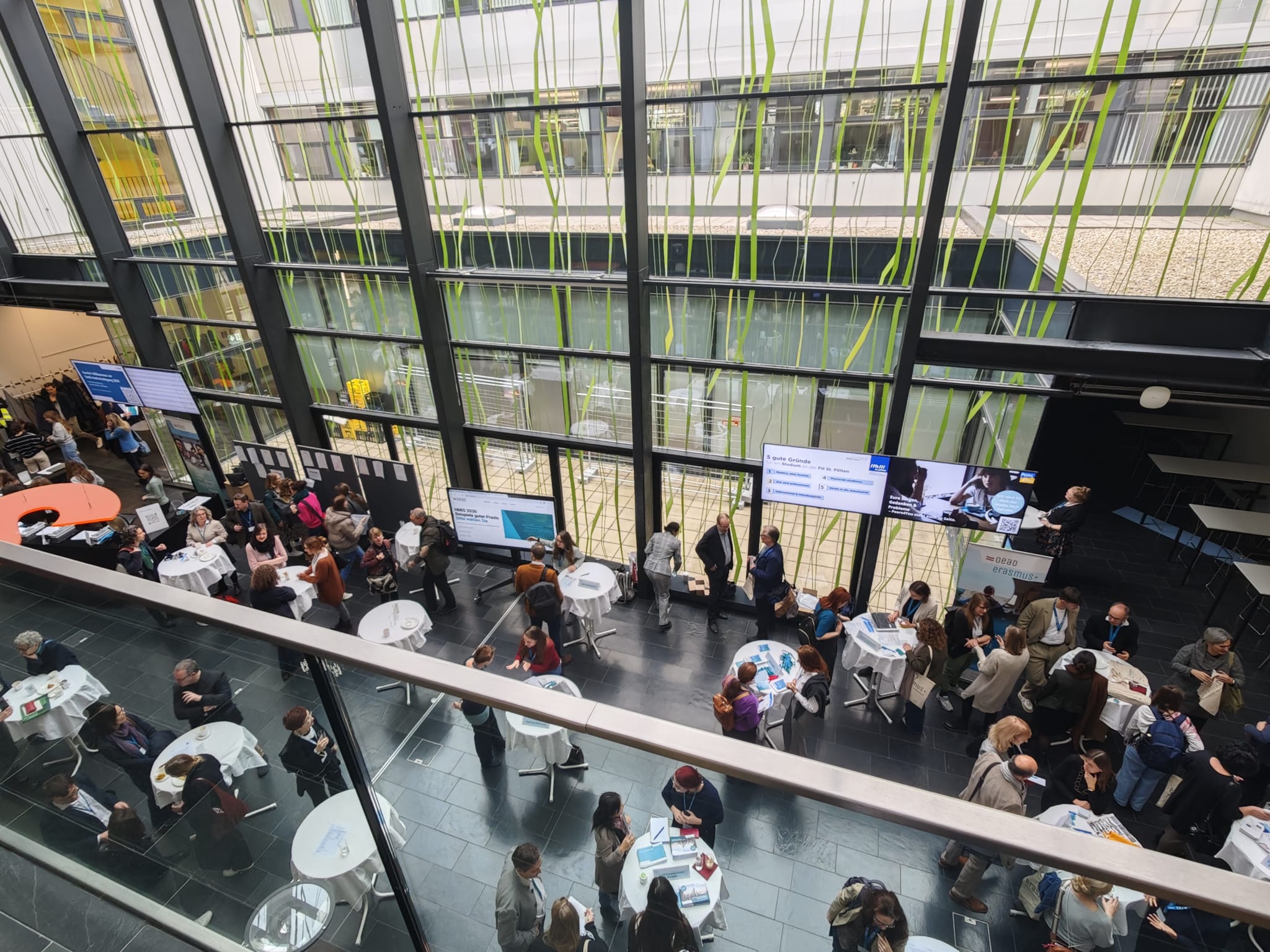
Prospect
AI and Security
We are hosting a very relevant event on Monday afternoon.
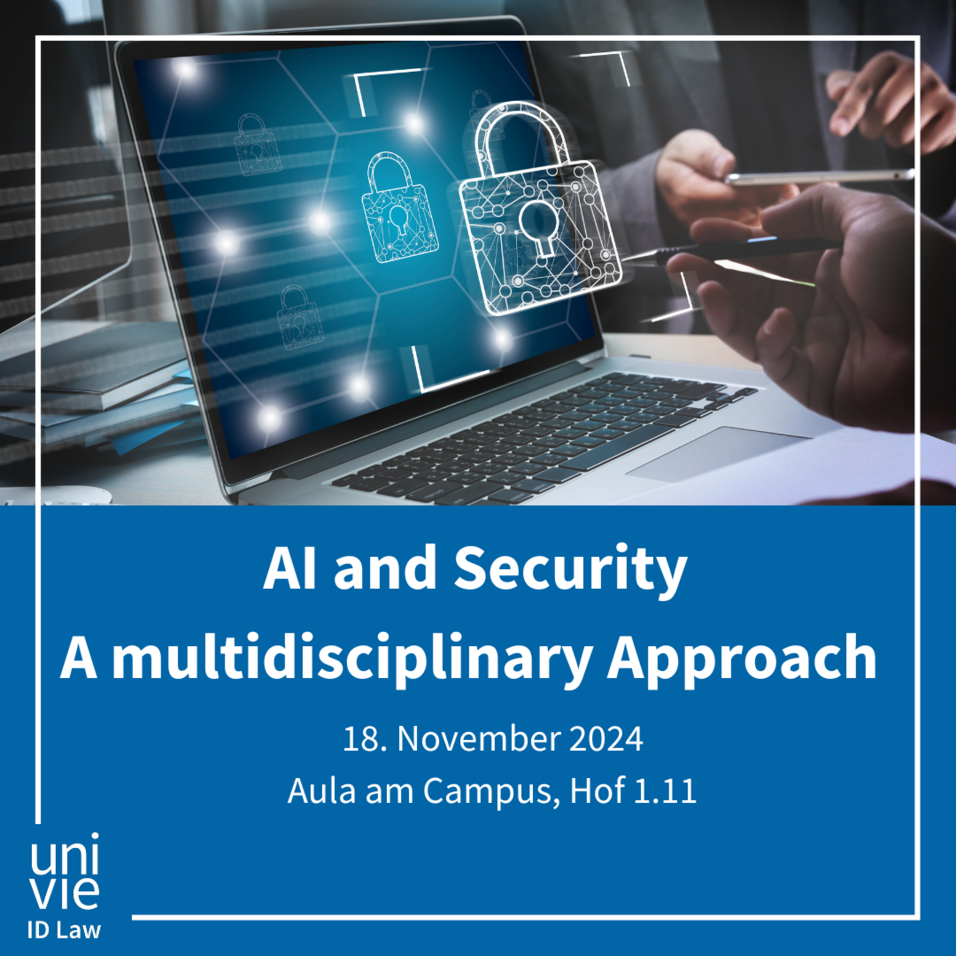
Registration is free, it’s not yet decided whether we will stream (due to the technical problems we had on Wednesday), but we will try to, at least, record the panel.
Forum WORK 4.0 CARE
Tuesday, November 19, will bring me to St. Pölten again, for a gig on data protection as enabler or preventor in long term care.
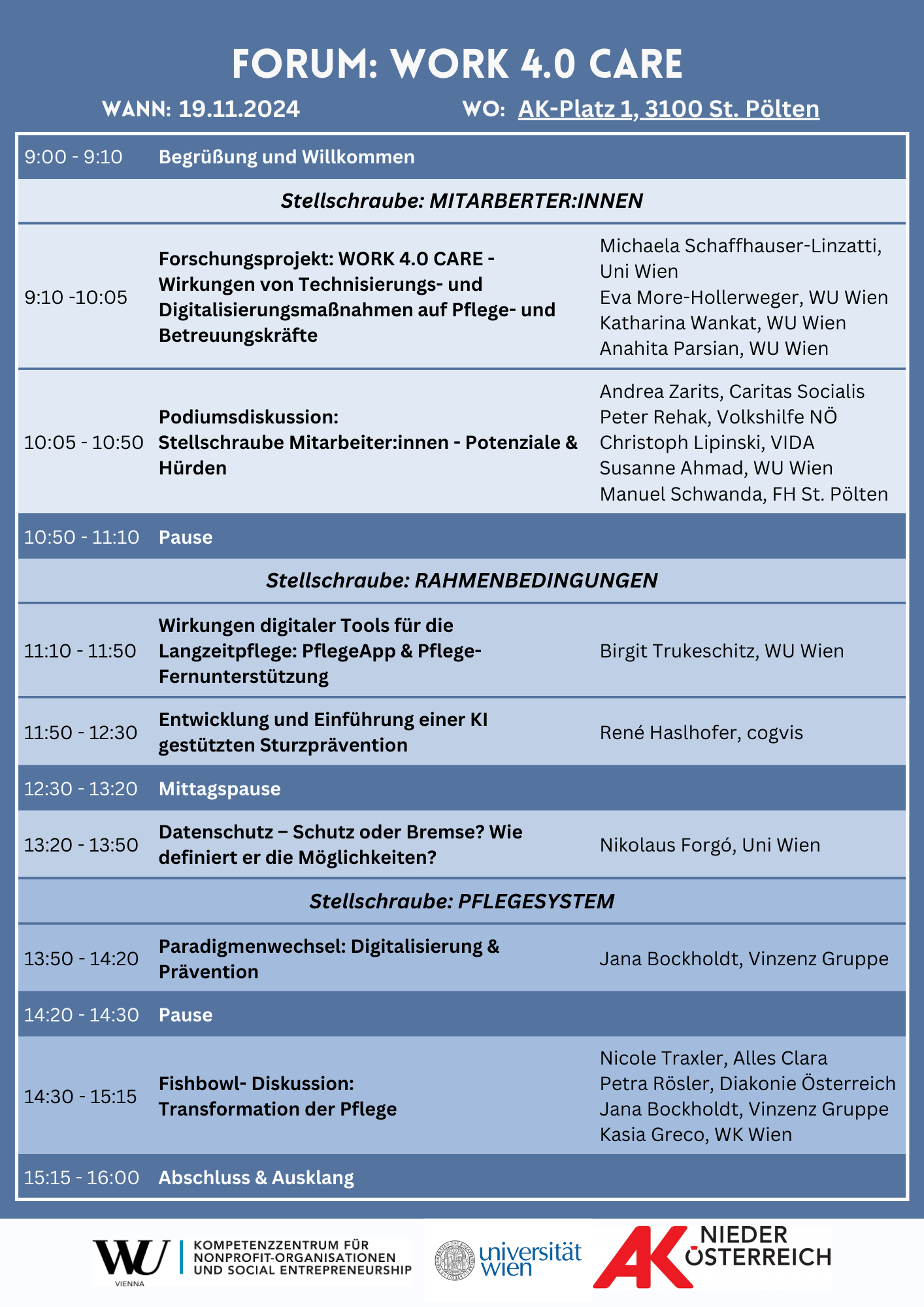
Late registrations might be still possible, entry is free, no stream (as far as I know).
DGRI-Jahrestagung 2024
The German Association for Computer Science and Law (Deutsche Gesellschaft für Recht und Informatik, DSGR) has their yearly conference in Kassel.
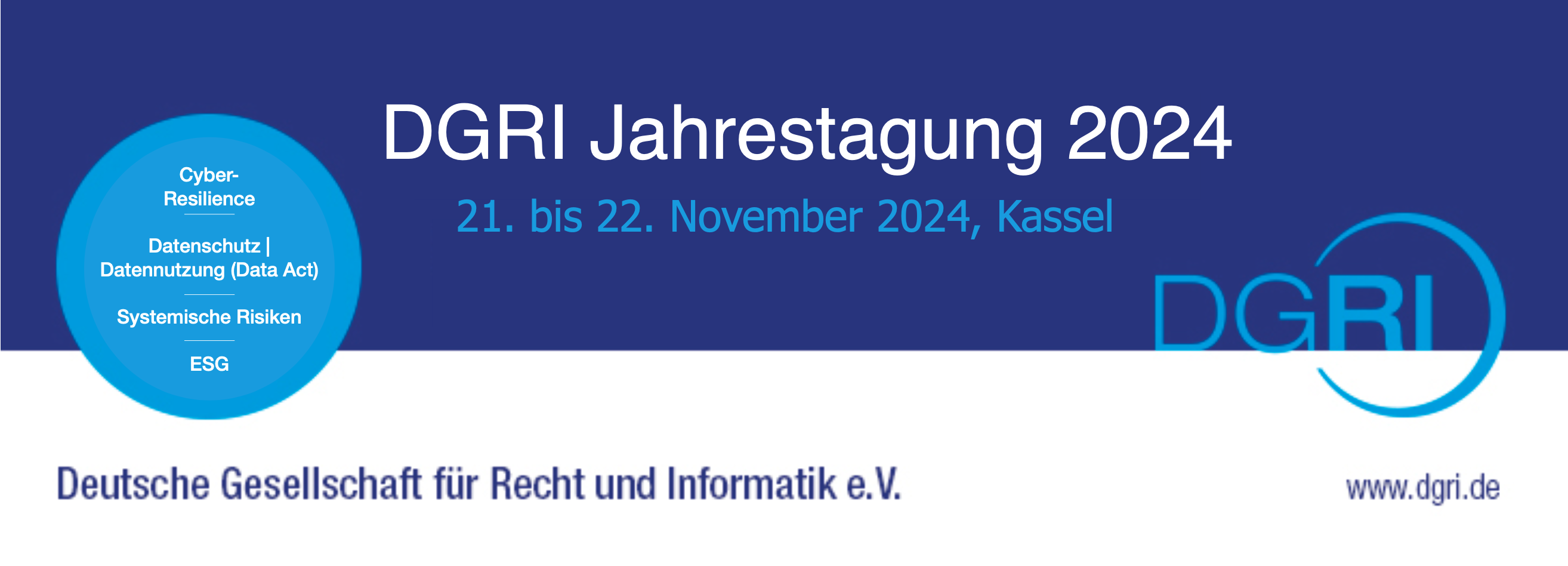
I will speak (remotely) about “Resilienz trotz Regulierung? (Ökonomische Fehlsteuerung, Vollzugsdefizit, nicht gerechtfertigte Grundrechtseinschränkungen)” on Thursday at 12.45. This is an on site and members only event, but Kassel and DGRI are worth the trip. The setlist reads like a Who is Who in (German) IT-Law.
#arsboni
I am looking forward to two sessions next week:
On Wednesday, at 11.00 am, I will have the privilege to welcome one of the most interesting Austrian AI-driven legal tech startups: AI:ssociate.
And on Friday I will speak with Simon Schützeneder and with Eva-Maria Tos from te Austrian association of inhouse lawyers (Vereinigung Österreichischer Unternehmensjurist:innen). The association celebrates its 10th birthday. We will talk about the job maket and its data and AI-driven changes for inhouse lawyers.
Look and Feel
I want two recommend two books I am currently reading.
The first one is a sentimental journey into the 80ies in Vienna

Those somehow in my age might remember some of the people and places mentioned (Herr Josef in Café Votiv[park?] in Kolingasse!), the younger might find it interesting to understand how it was to be a young adult in Vienna then. It’s stunning, how similar the biographies read, everybody drank too much, hung around at the same places (Rave Up! U4!) and heard very similar radio programs (Musicbox!) and music.
The second is an interesting mixture of ‘hard science’ and autobiography:
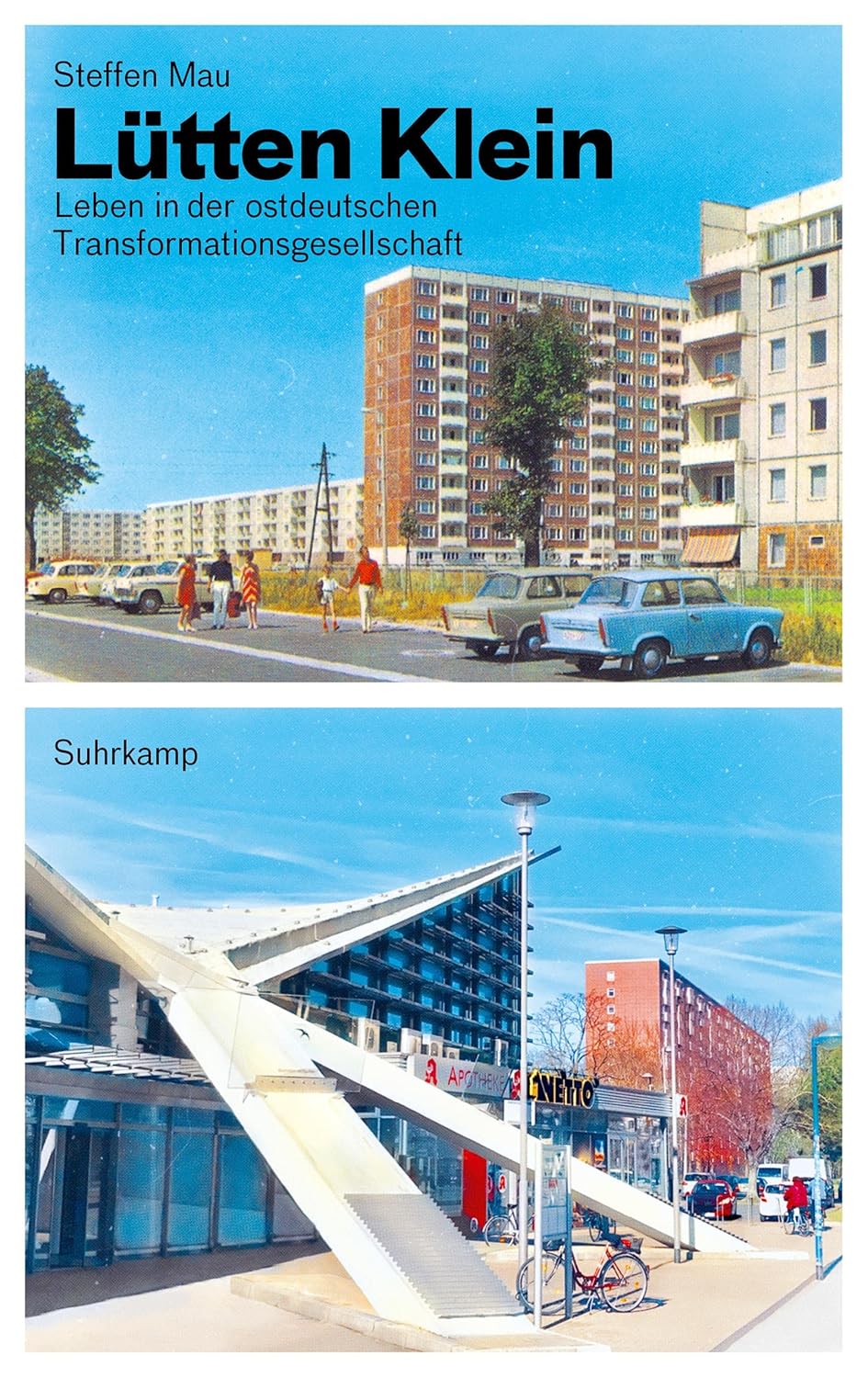
Steffen Mau, born in the same year like me, 1968, and currently professor of macrosociology at HU Berlin, writes about his youth and about how the GDR did not transform into “Blühende Landschaften”, as promised - and how the aftermaths of this can be seen today.
Daisy
finally found a stick meeting her ambitions.
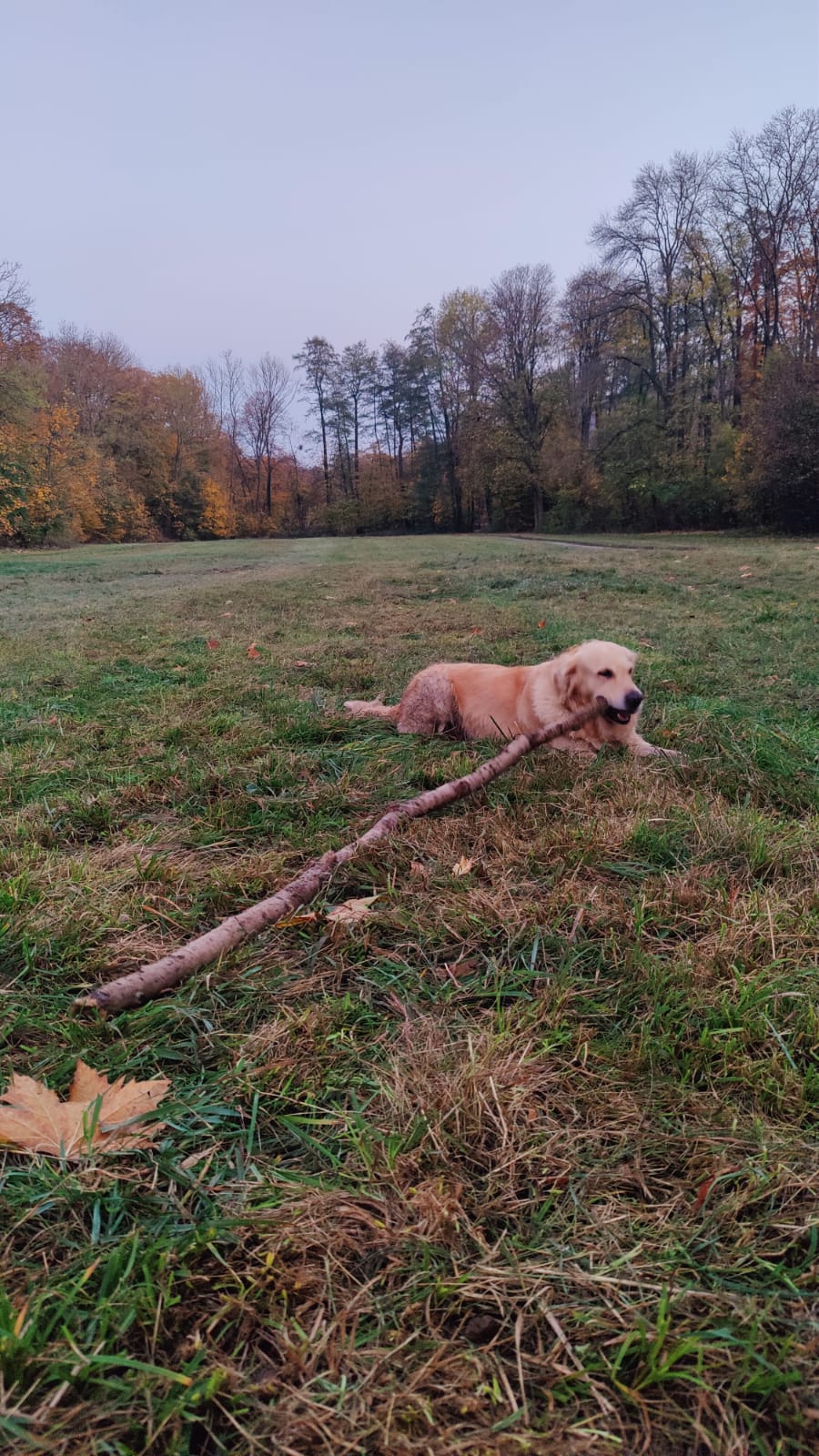
© Birgit Forgó-Feldner
Have a wonderful week!
Kind regards
Nikolaus (Forgó)

